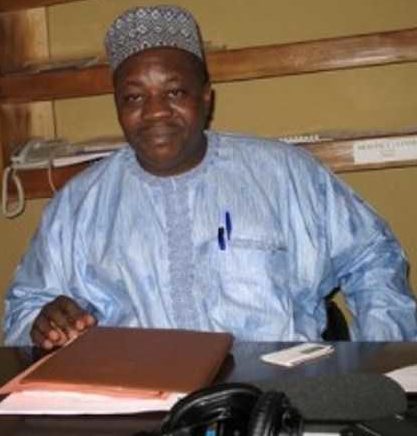It has been another tough week for Nigerians confronted with political gangsterism from the highest levels of the State that is tearing Nigeria at the seams. There is apparently a belief in Nigeria’s ruling circles that they can do anything and get away with it, while keeping their power intact. I think they are wrong. We cannot continue with seasons of anomie closely following each other and maintain a country. There has simply been too many negatives following day after day in recent times.
One of the most painful events was the killing of Brig Gen Musa Uba, the commander of the 25 Task Force Brigade. Unfortunately, this brave officer with a track record of combat to save his fatherland paid the supreme price following an ambush on his team by the fighters of Islamic State West Africa Province (ISWAP) last Friday. He was leading his men and members of the Civilian Joint Task Force (CJTF) when the insurgents ambushed them along the Damboa-Biu axis, killing four operatives—two soldiers and two CJTF officials. He escaped the initial ambush and was communicating with military authorities to return to base when he was captured by the terrorists, who subsequently killed him. At a time when many of his senior colleagues avoid the war theatre and simply send their subalterns, it is tragic that the high command would not do the necessary to save his life. The repercussions of his loss might have a lasting impact on Nigeria’s war on terror.
This strategy about the loss of a general was followed by the abduction of 25 students from Government Girls Comprehensive Secondary School, Maga, in Danko/Wasagu local government area of Kebbi State. Following the abduction of the 276 Chibok girls in 2014, 110 girls from Dapchi Girls Secondary School in 2018, 300 students abducted from Government Science Secondary School, Kankara, Katsina State in 2020 etc etc the Nigerian government has always said it shall not happen again. Students in the 168,000 schools across Nigeria will be protected through the Safe Schools Initiative. But again, and again, predictable tragedy is allowed to happen.
The Kebbi State governor, Mohammed Nasir Idris, on Monday night, fumed over what he described as failure to act on credible intelligence from the DSS: “This is clear sabotage. We got credible intelligence from the DSS (Department of State Services) that this school was likely to be attacked. DSS further advised that we convene an emergency Security Council meeting, which we did. And the decision was that we would provide round-the-clock protection for the students,” said the governor. The governor lamented that deployments were made to secure the school. The heavily-armed security men spent time taking photographs with the students, only to abandon them 30 minutes before the attack. This was therefore very clearly a tragedy that was allowed to happen. If history is to be a guide, no one will be held accountable for these killings and abductions as we wait for the next set of students to be attached. How can we say we have a State when there is zero accountability for criminal collusion? Meanwhile, parents are left to take the difficult decision to send their children to school and risk losing them or keep them at home making their futures bleak.
Also, this week, gunmen attacked a church in central Nigeria, killing at least two people and kidnapping the pastor and some worshippers. The attack took place on Tuesday evening in Eruku, a town in Kwara state. For the first time, even President Bola Tinubu blinked and postponed a planned trip to South Africa and Angola for G20 and AU-EU summits to receive security briefings on the numerous attacks. As usual, for the millionth time, the President ordered more security to hunt down the assailants in Kwara and directed the security agencies “to do everything possible” to rescue the schoolgirls, “abducted by the bandits and bring the girls back home safe”, his spokesperson Bayo Onanuga said.
In terms of drama, the biggest skit of the week was watching policemen fighting each other to throw out or bring in two combative factions claiming the leadership of the Peoples’ Democratic Party, PDP, seeking to take and control the Wadata, Abuja National Secretariat of the party. The dramatis personae were the newly elected National Chairman, Alhaji Tanimu Turaki, SAN, who had fixed the inaugural meeting of the new National Working Committee, NWC, at the secretariat, while the faction loyal to the Federal Capital Territory, FCT, Abuja Minister, Mr Nyesom Wike, had also scheduled an emergency Board of Trustees, BoT, and National Executive Committee, NEC, meeting at the same venue. Governors and ministers used their “factions” of the Nigerian police force to tear gas the other and throw them out of the secretariat. It would have been interesting theatre but for the fact that what is at stake is the survival of Nigeria’s democracy.
The tragedy of the situation is that a minister of the Tinubu administration has decided to remain in the PDP and fabricate crisis after crisis to disable the party from contesting against the current serving president who is keen on winning the 2027 presidential elections. Using state power, money and manipulation of the judiciary, the government has been successful so far in igniting crisis-generating mechanisms in all other parties that could contest the next elections. This determination to ensure that there will be no level playing ground in the next election is a very serious threat to Nigeria’s democracy. The pathway towards the establishment of a one-party state is the fastest route to the disintegration of Nigeria.
I don’t know whether President Tinubu has a political adviser that is not a reckless let’s destroy all opponents so that we enjoy all the power alone believer. If he does, that adviser should explain to him that when the prince destroys all the opponents, all the people become new opponents.







